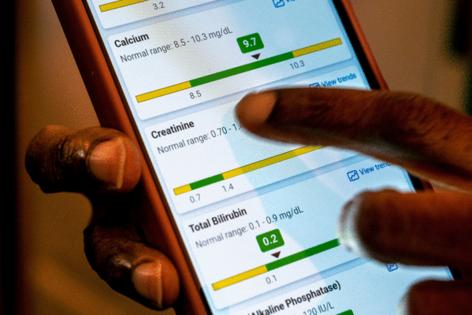A Pennsylvania study on racial bias in health care algorithms shows 'race is a bad variable'
Published in News & Features
PHILADELPHIA — University of Pennsylvania researchers undertook the most comprehensive review yet on the algorithms that doctors and health systems use to help make decisions on patient care and whether they contribute to long-standing racial biases in health care.
Their wide-ranging review of more than five dozen studies on algorithms and race found that some algorithms can result in more equitable care, while others can exacerbate health disparities.
Their conclusion: A patient's race isn't necessarily a useful data point in determining what kind of care they should receive.
Algorithms that included the race of a patient as part of an effort to reduce inequities generally resulted in better care for everyone. But those that included the race of a patient for no real reason tended to worsen racial disparities in health care.
It's a sign that intention matters when designing and using such programs in health care, the researchers say — and that health systems should be careful not to assume that an algorithm is unbiased simply because it's not human.
"Race is just a bad variable. It's always a proxy for something else," said Shazia Siddique, a Penn gastroenterologist who spent four years researching race and algorithms with a grant from the U.S. Department of Health and Human Services. That's because race is a social concept, she said, not a scientific one.
Genetics, for example, can vary widely among socially-defined racial groups: "Among Asians, for example, there's huge differences in genetic ancestry and social and cultural practices," Siddique said. And Black Americans descended from enslaved people might differ genetically from Black people from Africa or the Caribbean.
All of that variation makes race an unreliable data point. "The goal is really to figure out what are those variables to switch to instead of race," Siddique said.
Applying the findings in Philly
Some industry players expect to use their findings as they work to correct algorithms that can deepen biases. Last year, 12 Philadelphia-area health systems and the region's largest insurer, Independence Blue Cross, formed a coalition that pledged to eliminate race as a data point from several health-care algorithms.
...continued
©2024 The Philadelphia Inquirer, LLC. Visit at inquirer.com. Distributed by Tribune Content Agency, LLC.







Comments